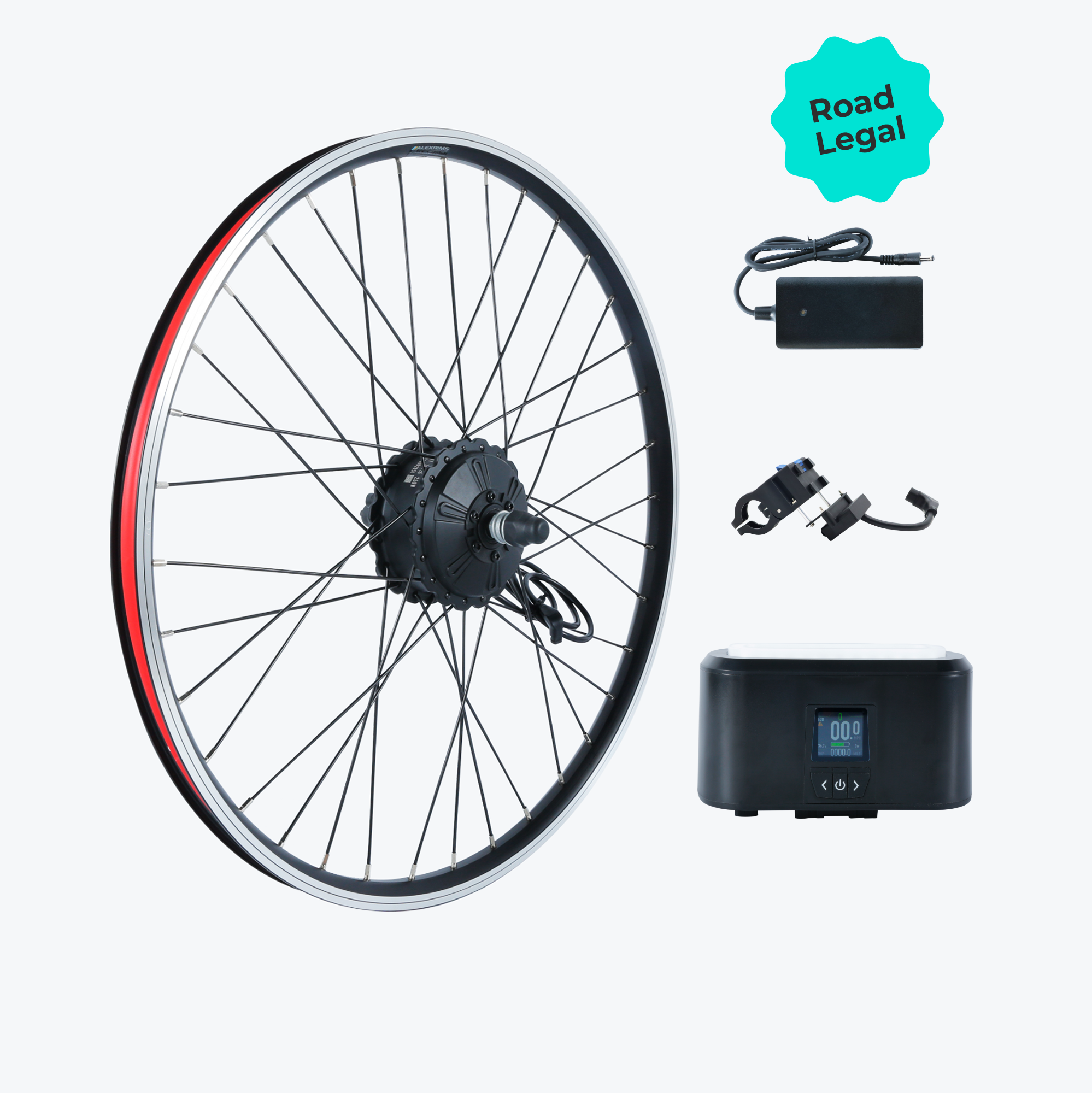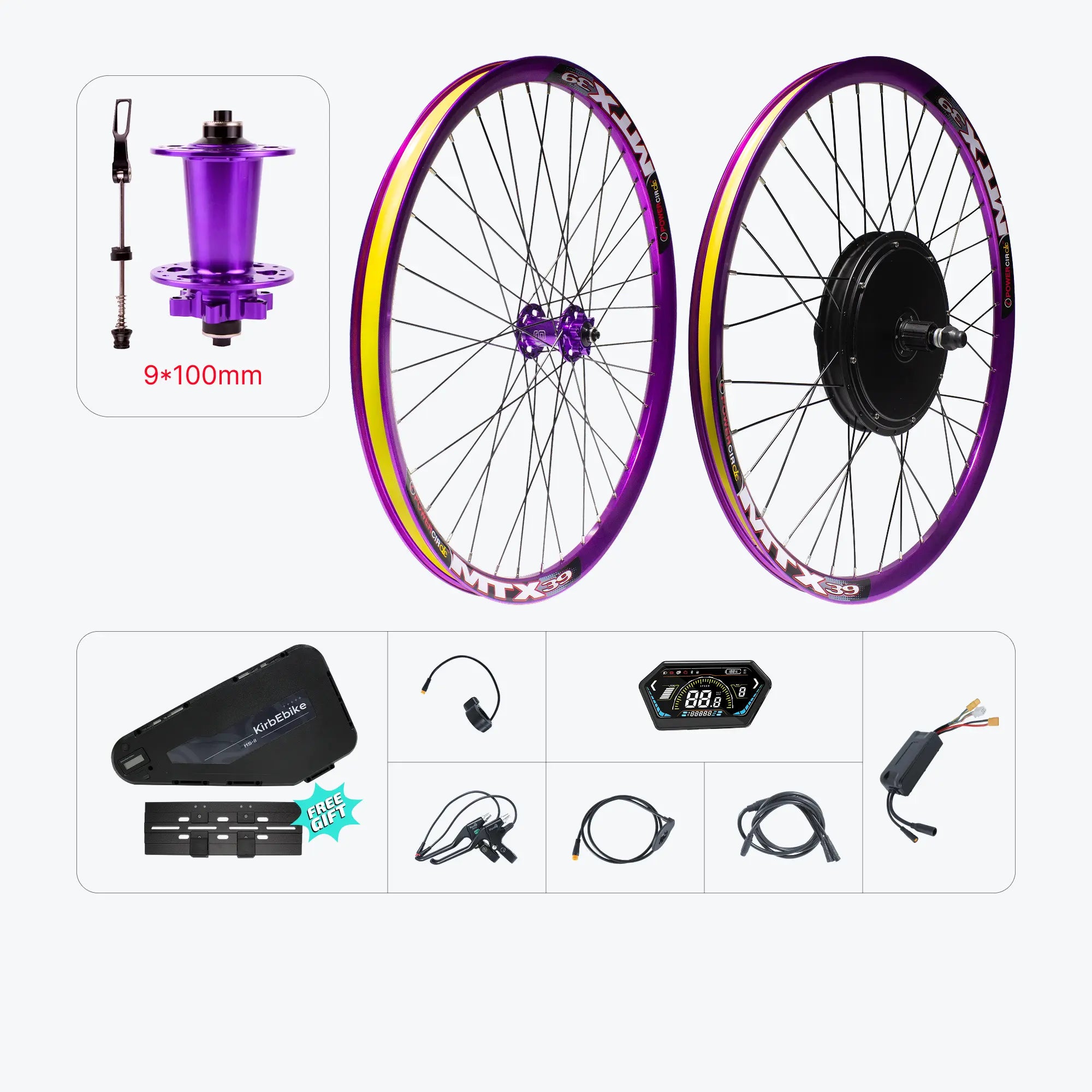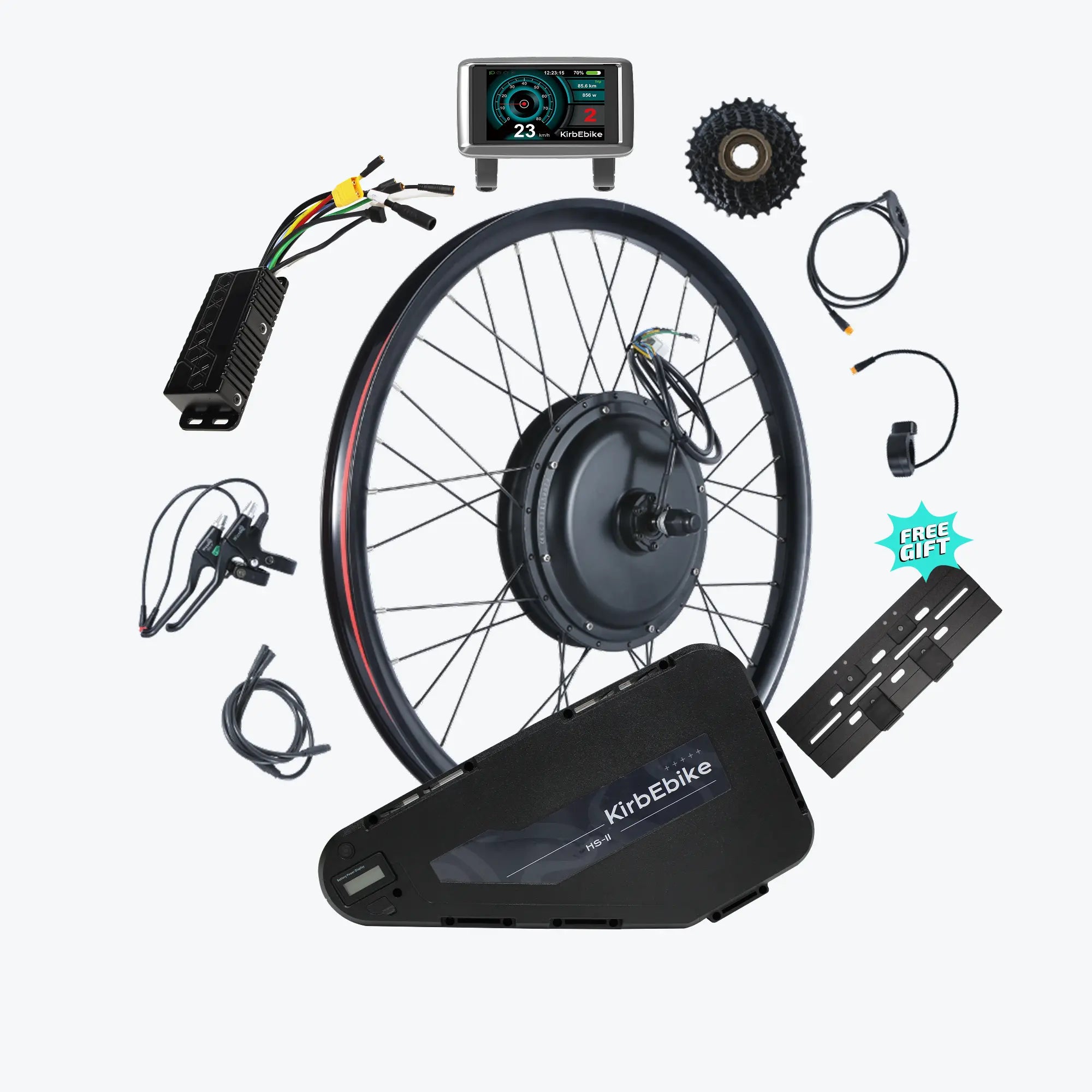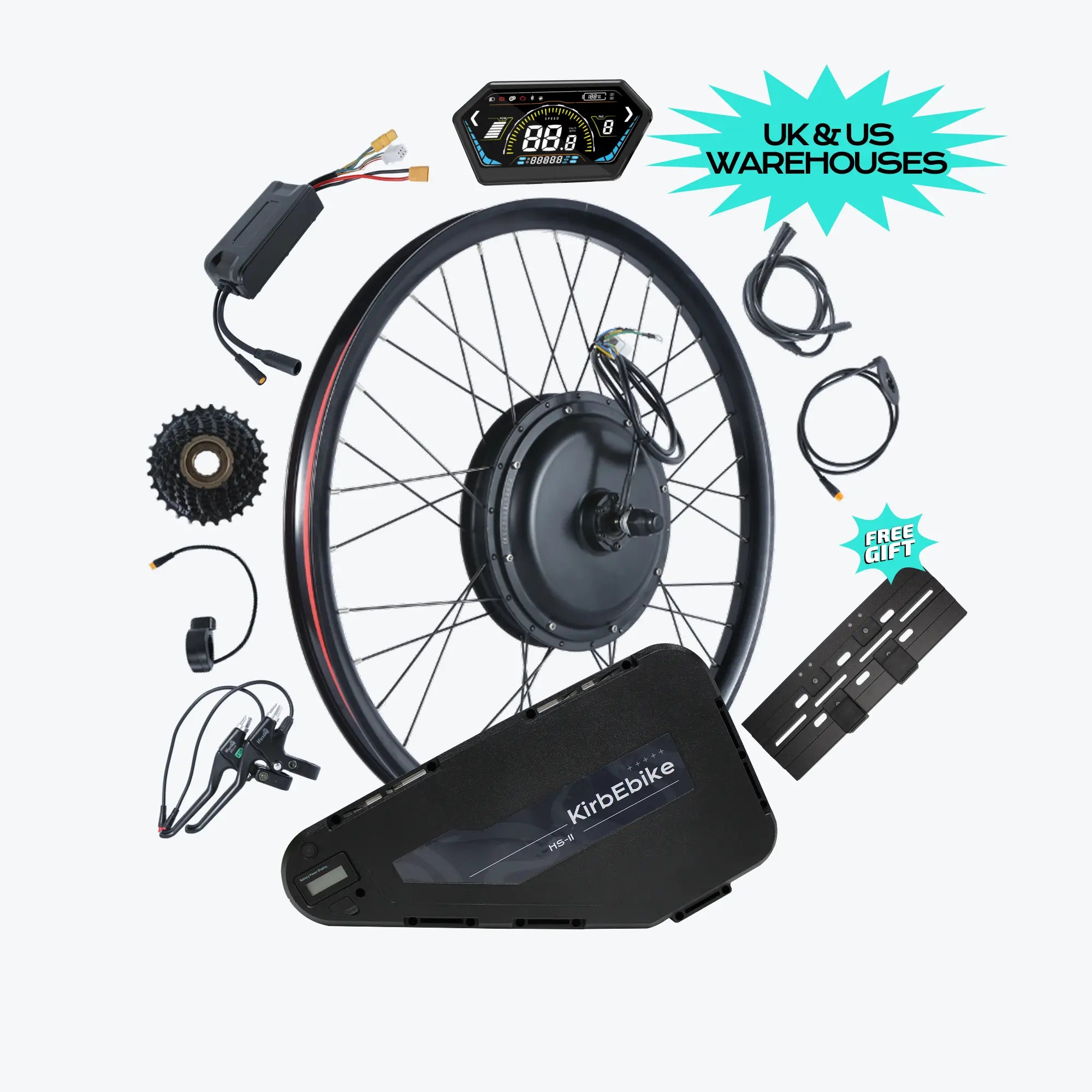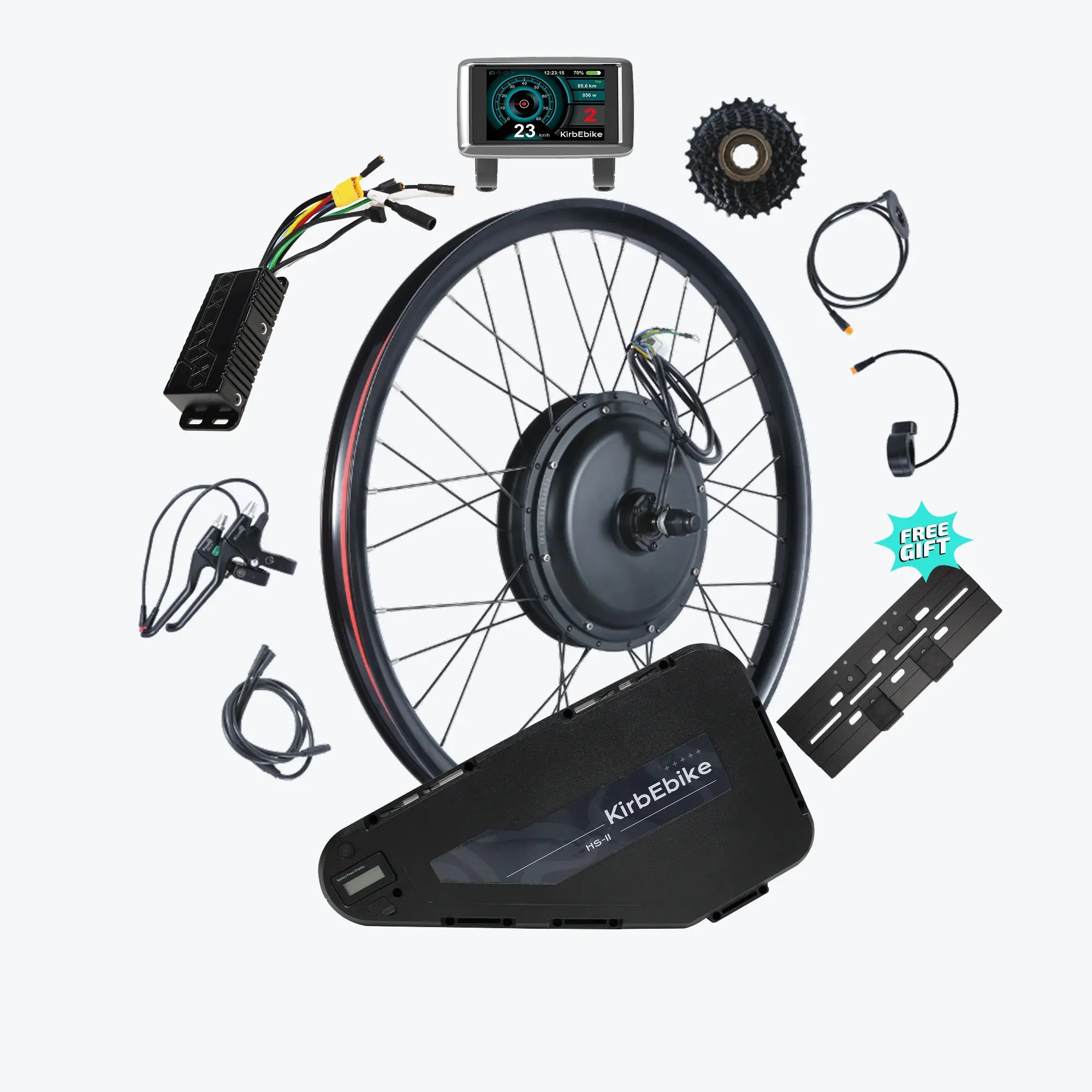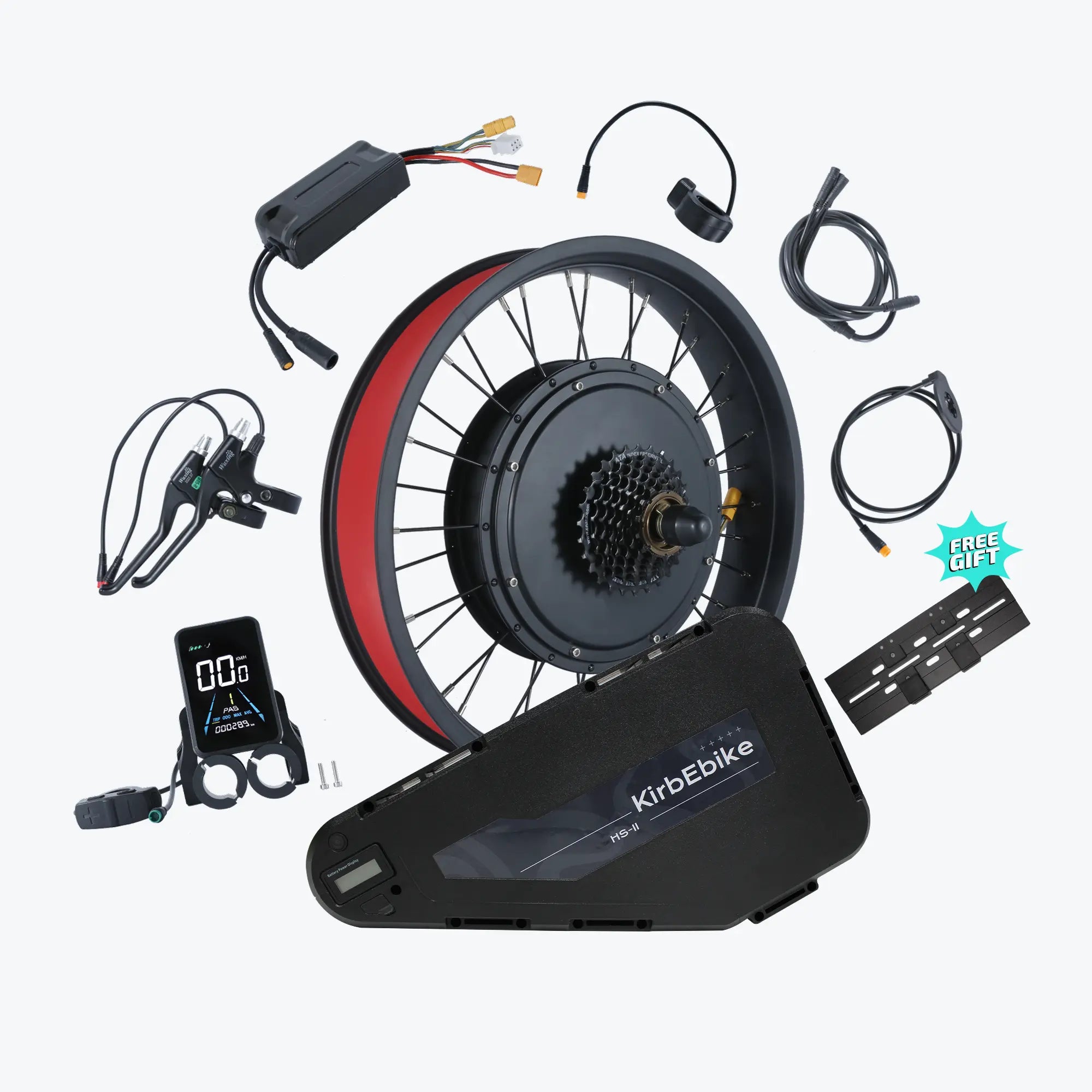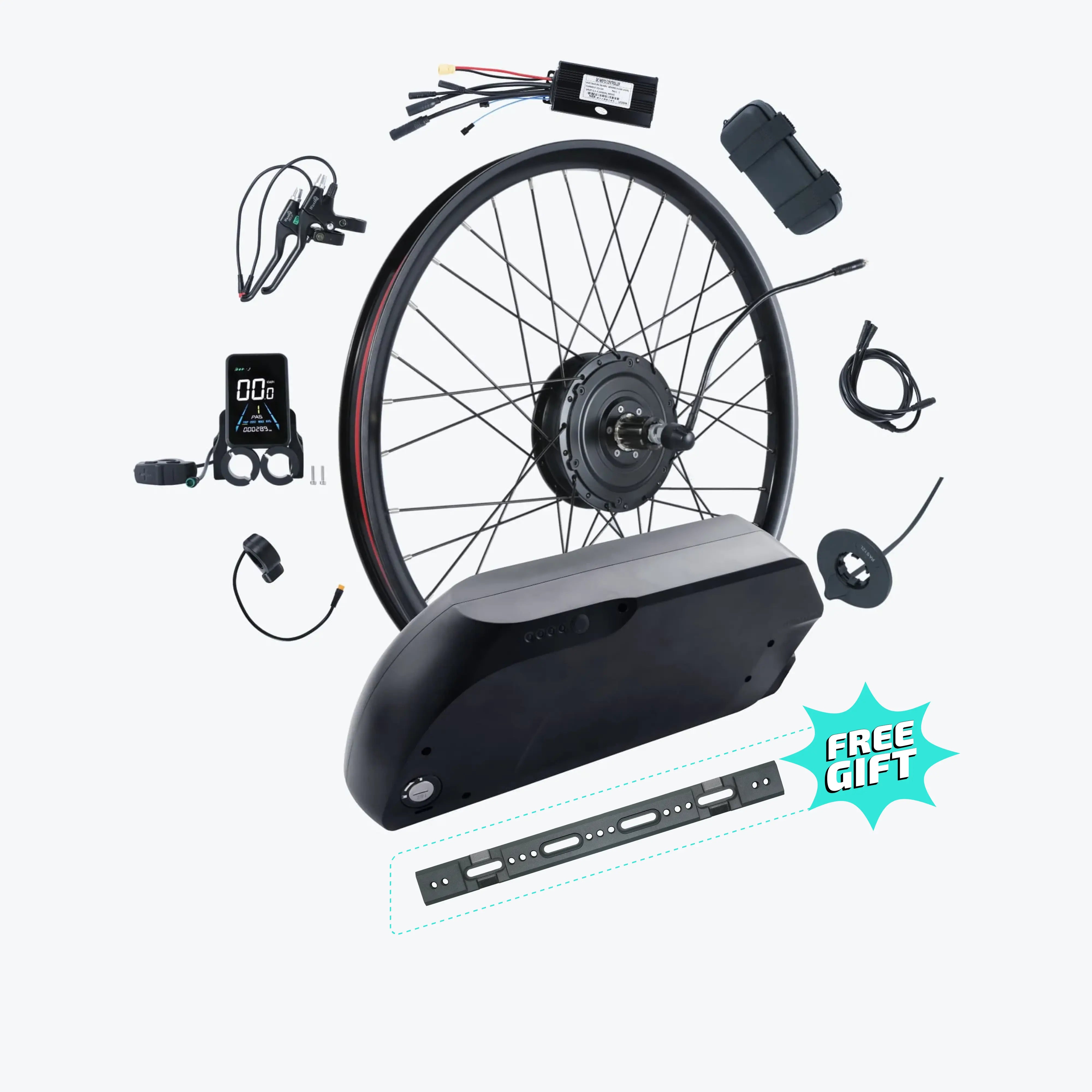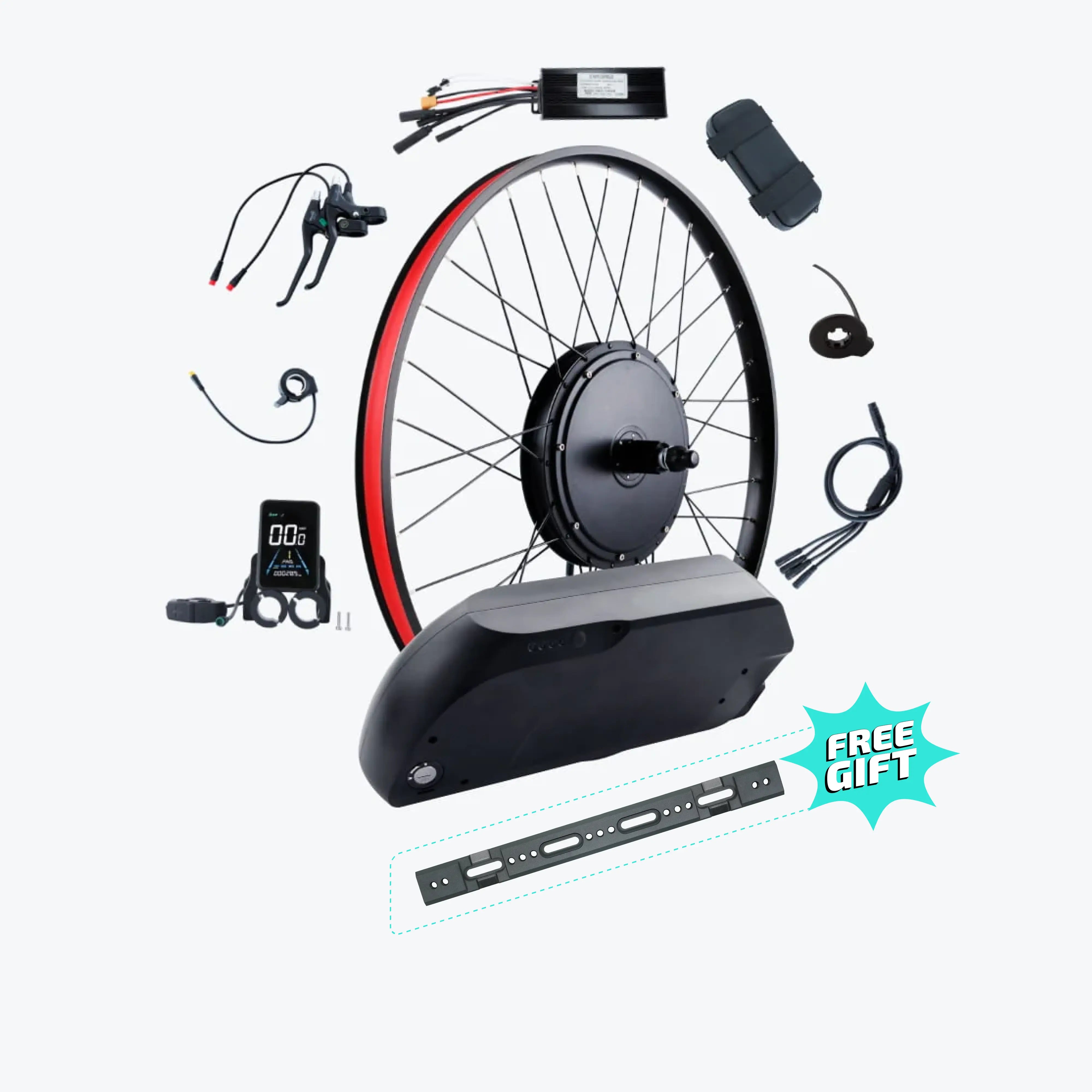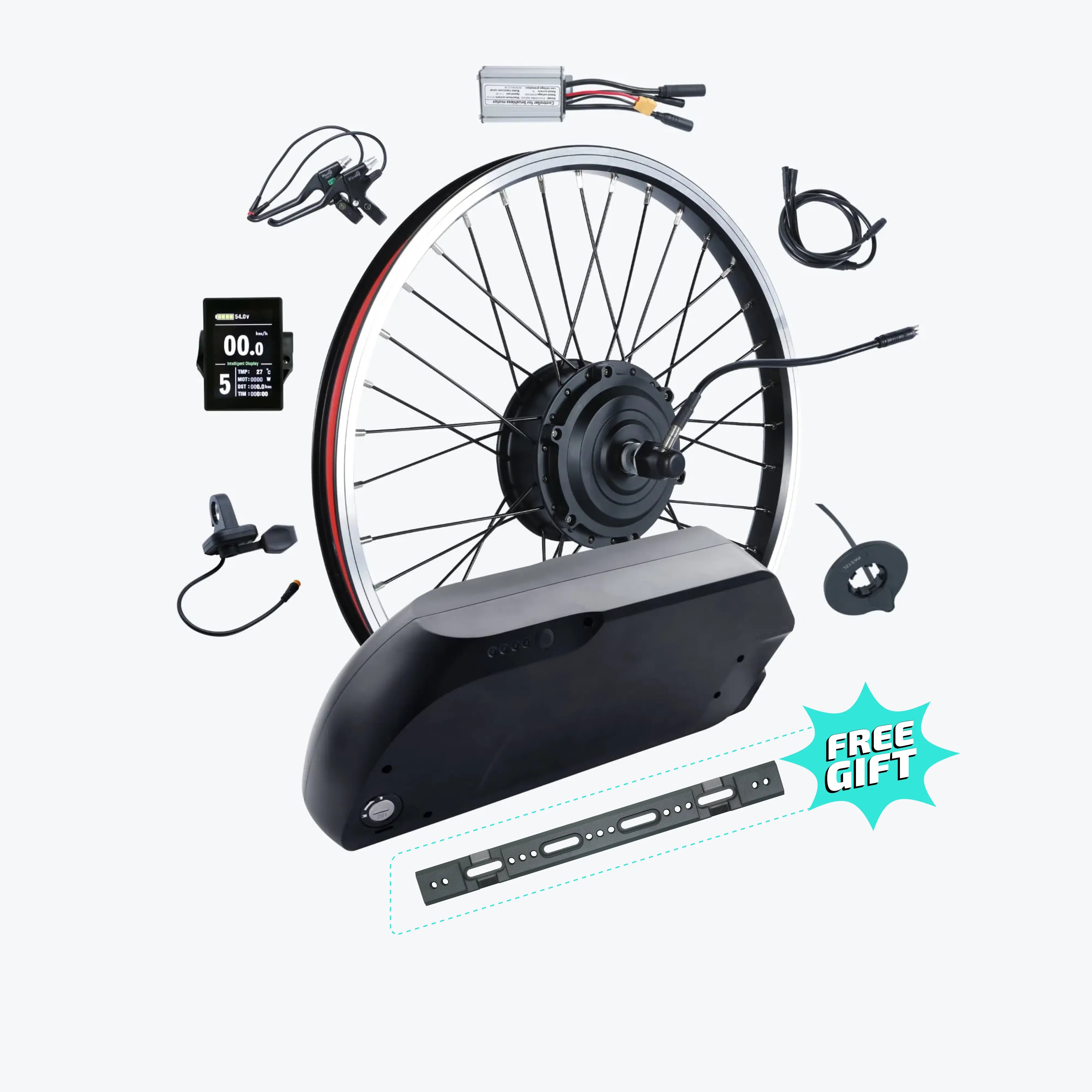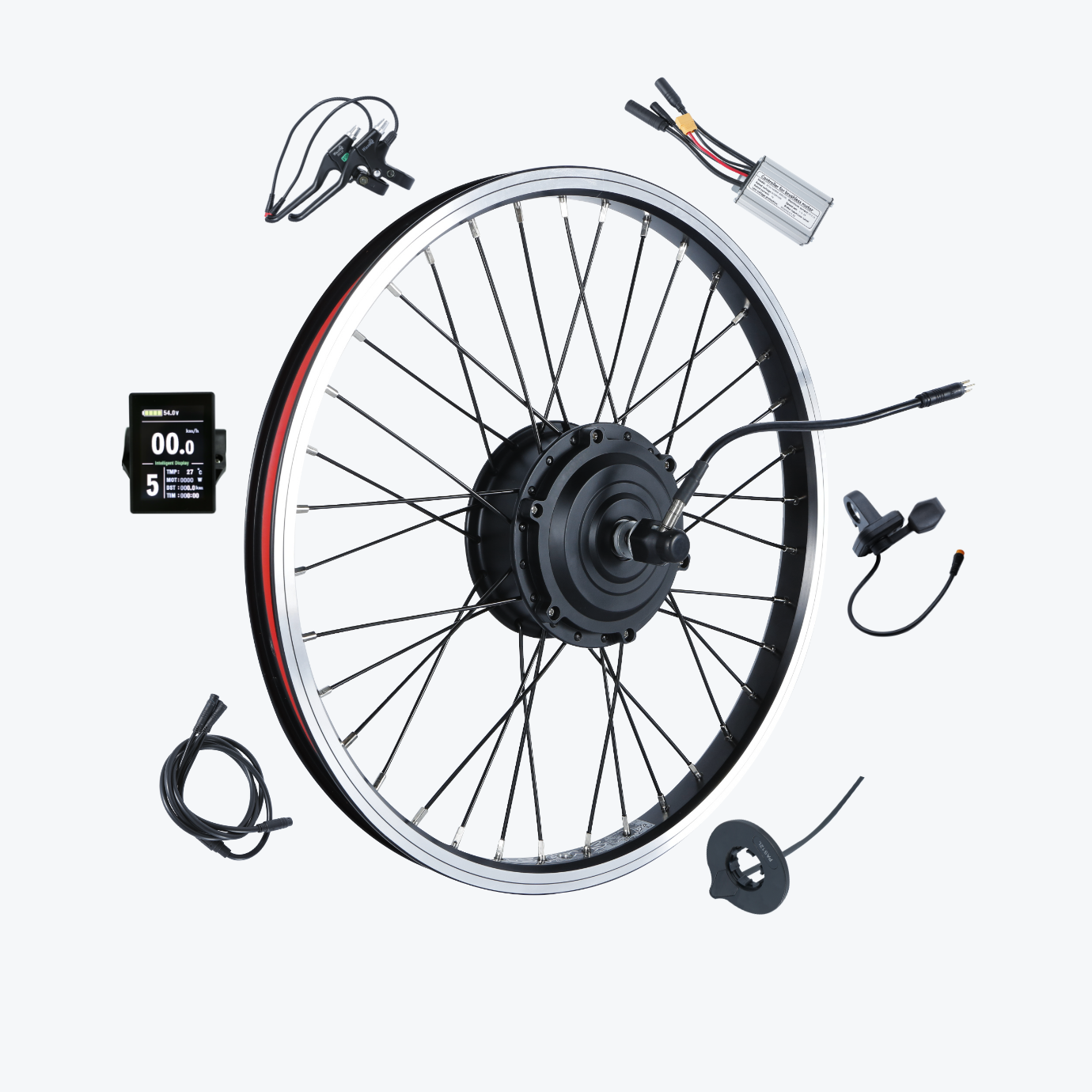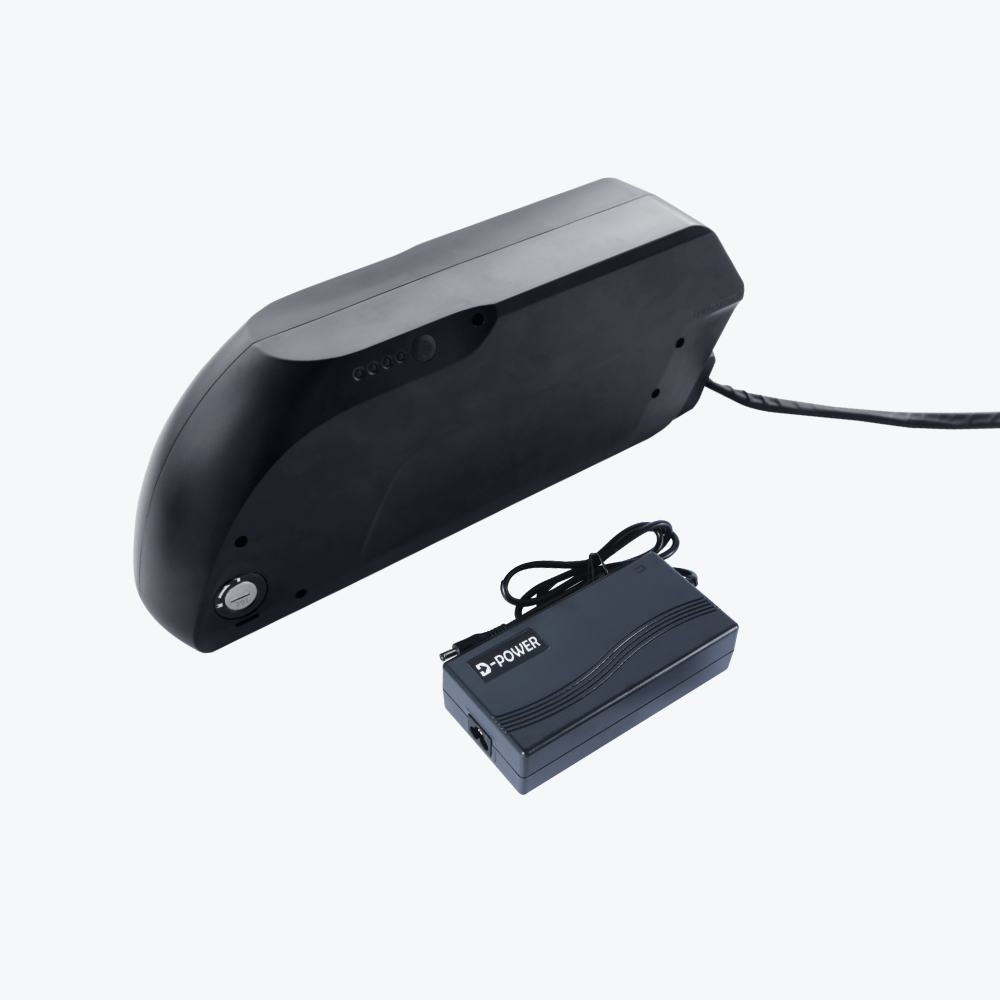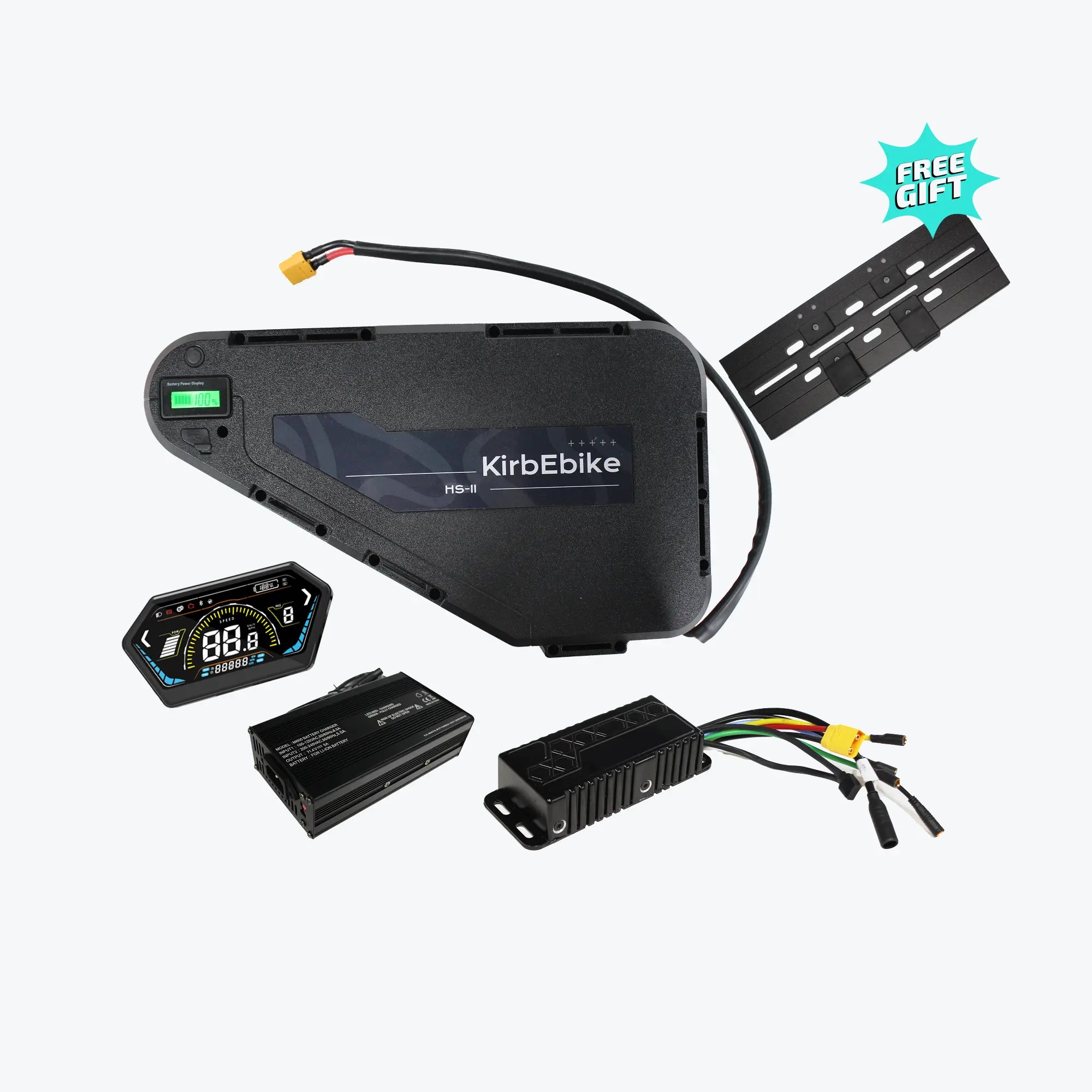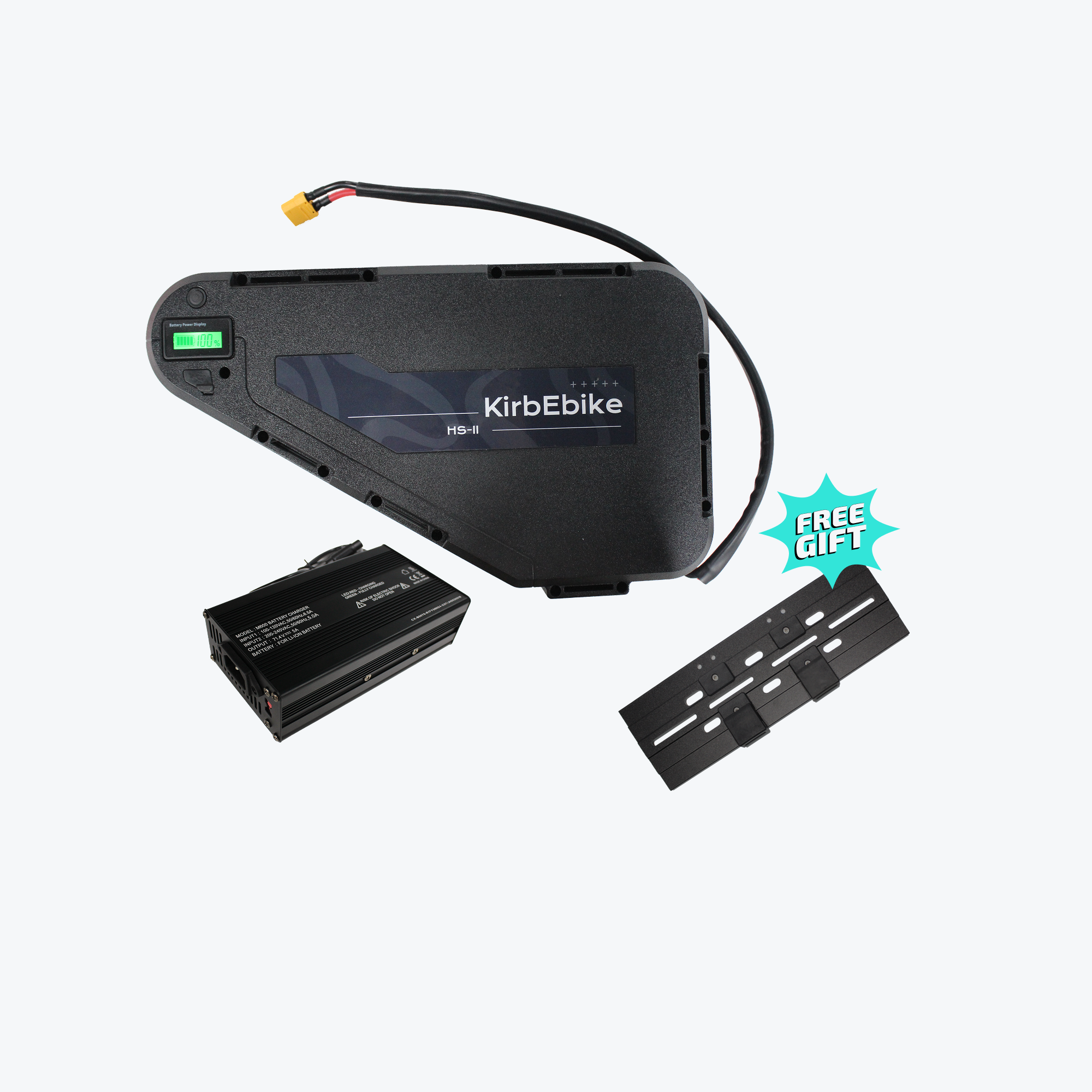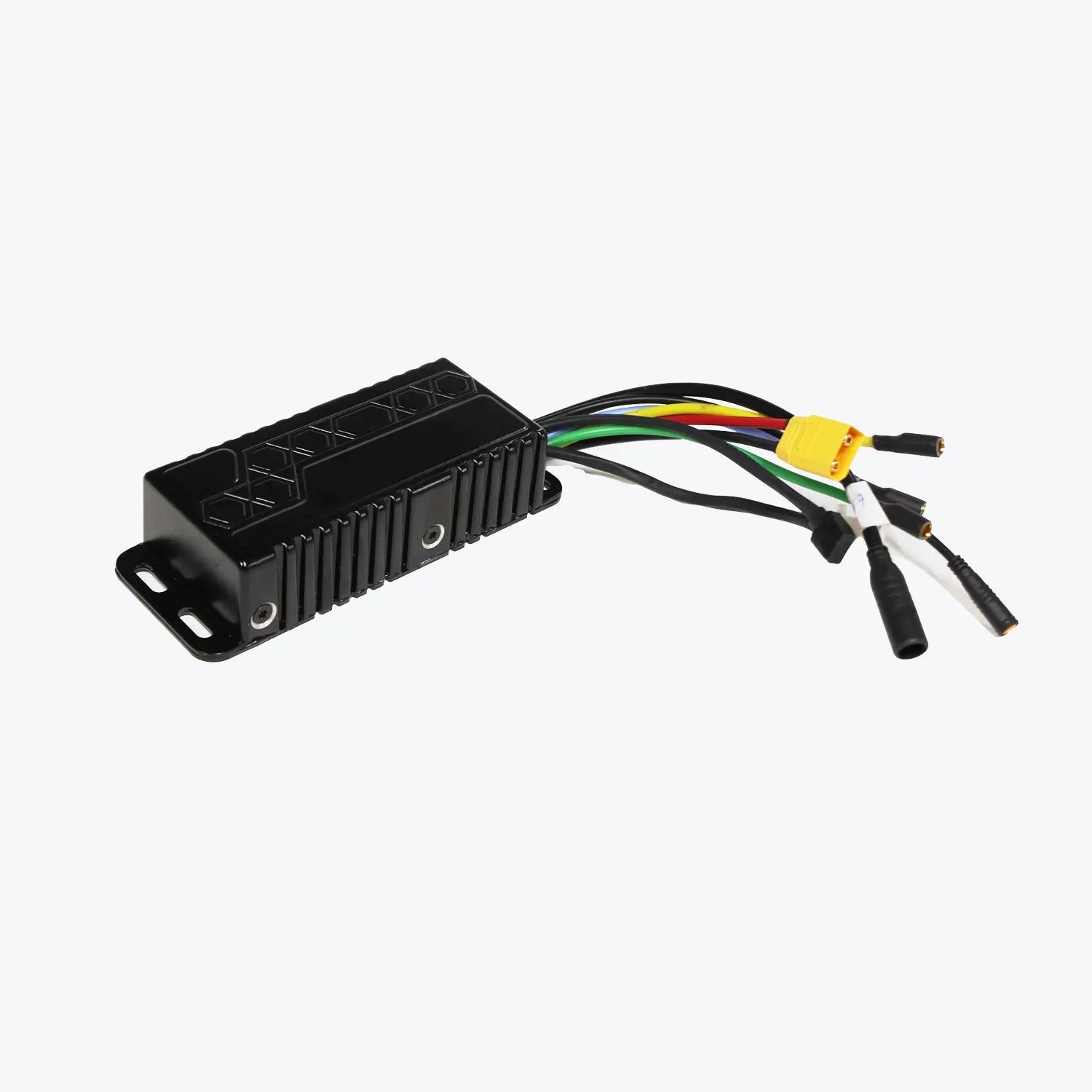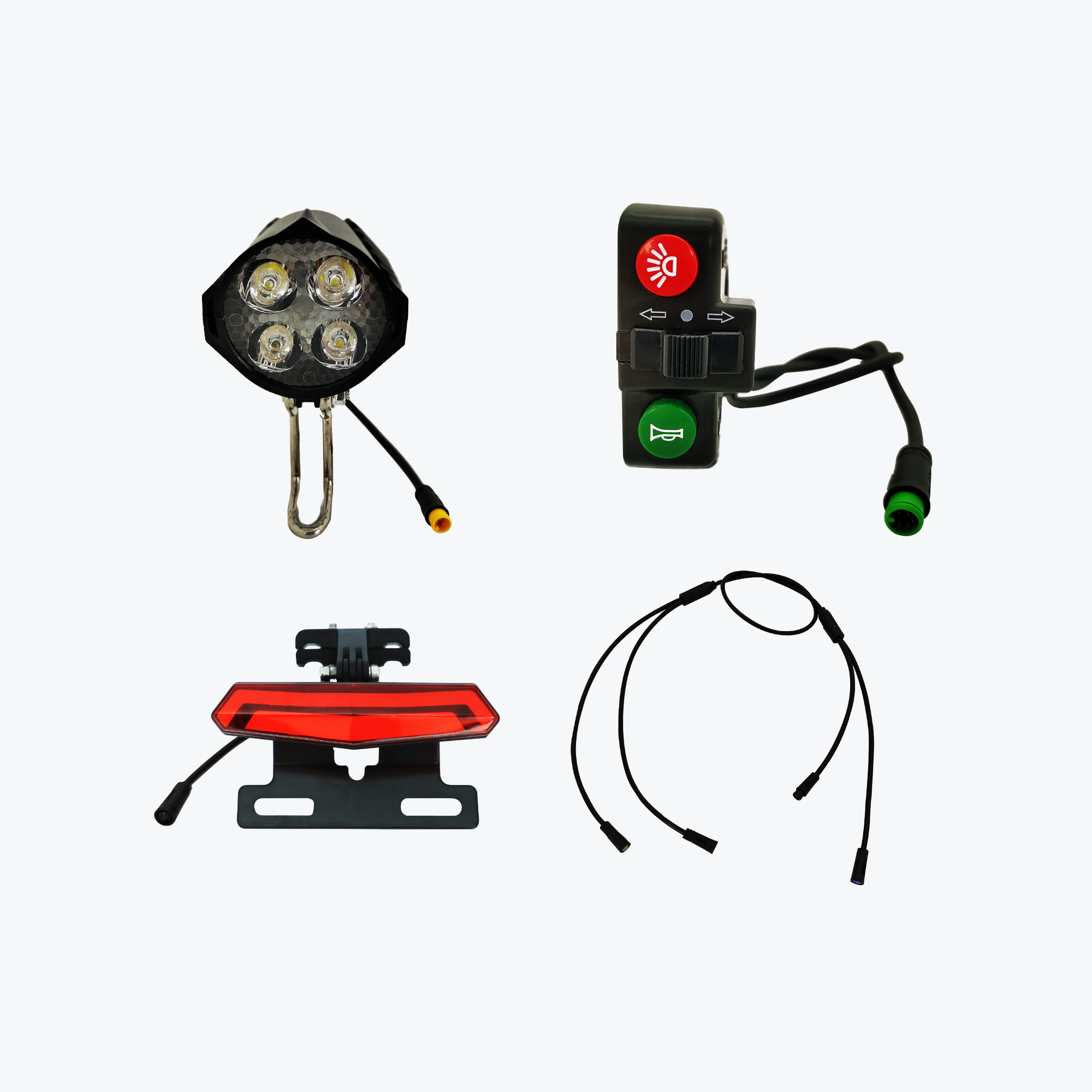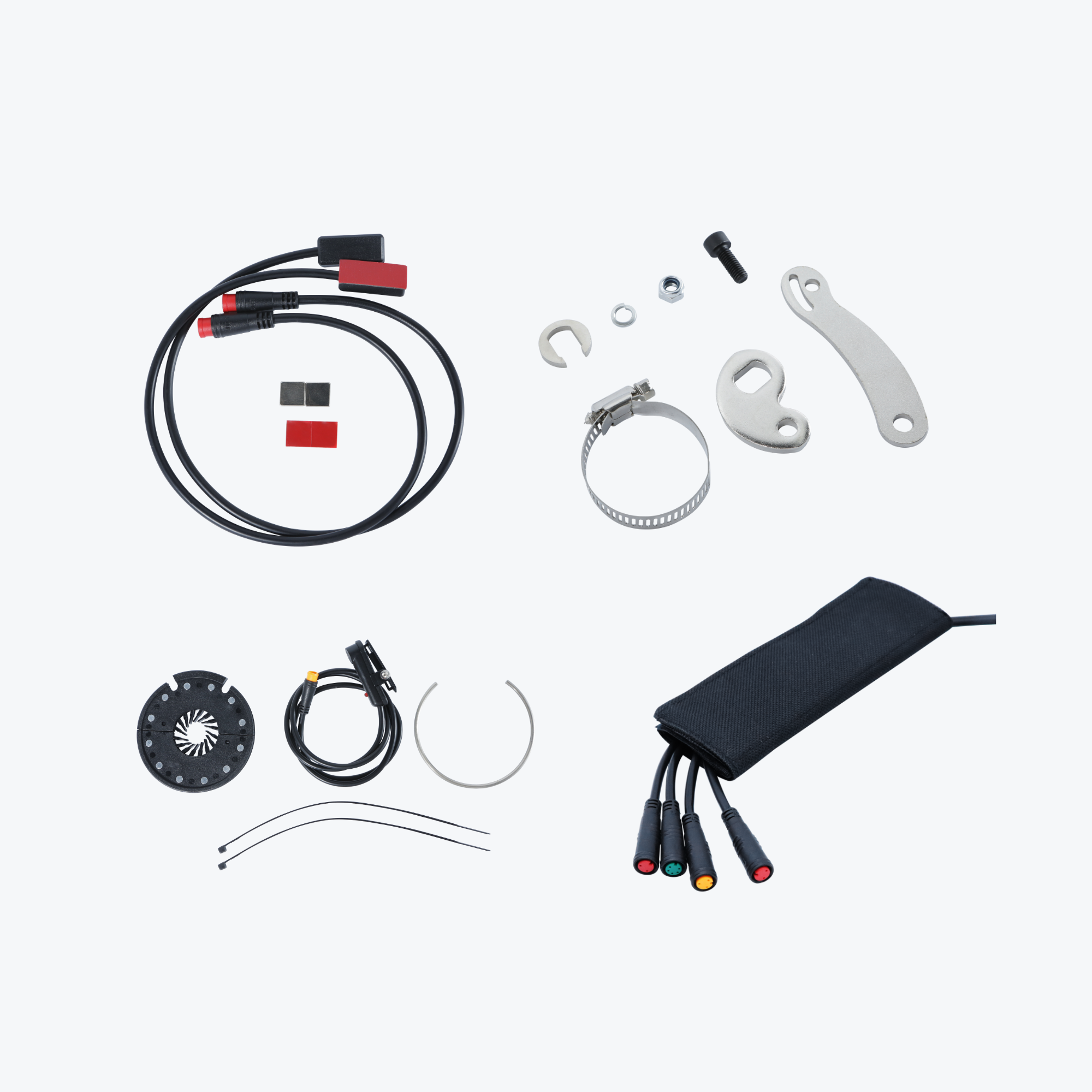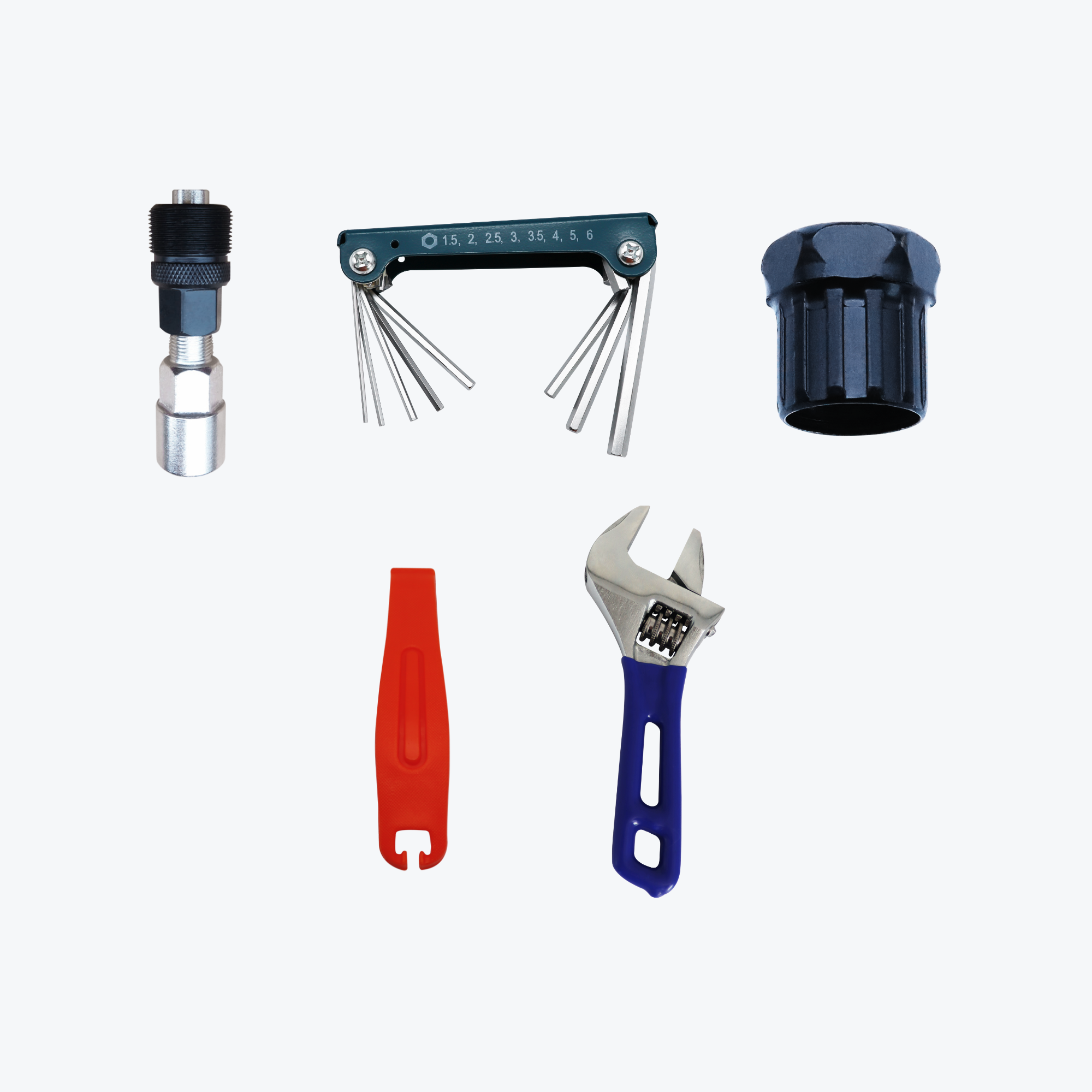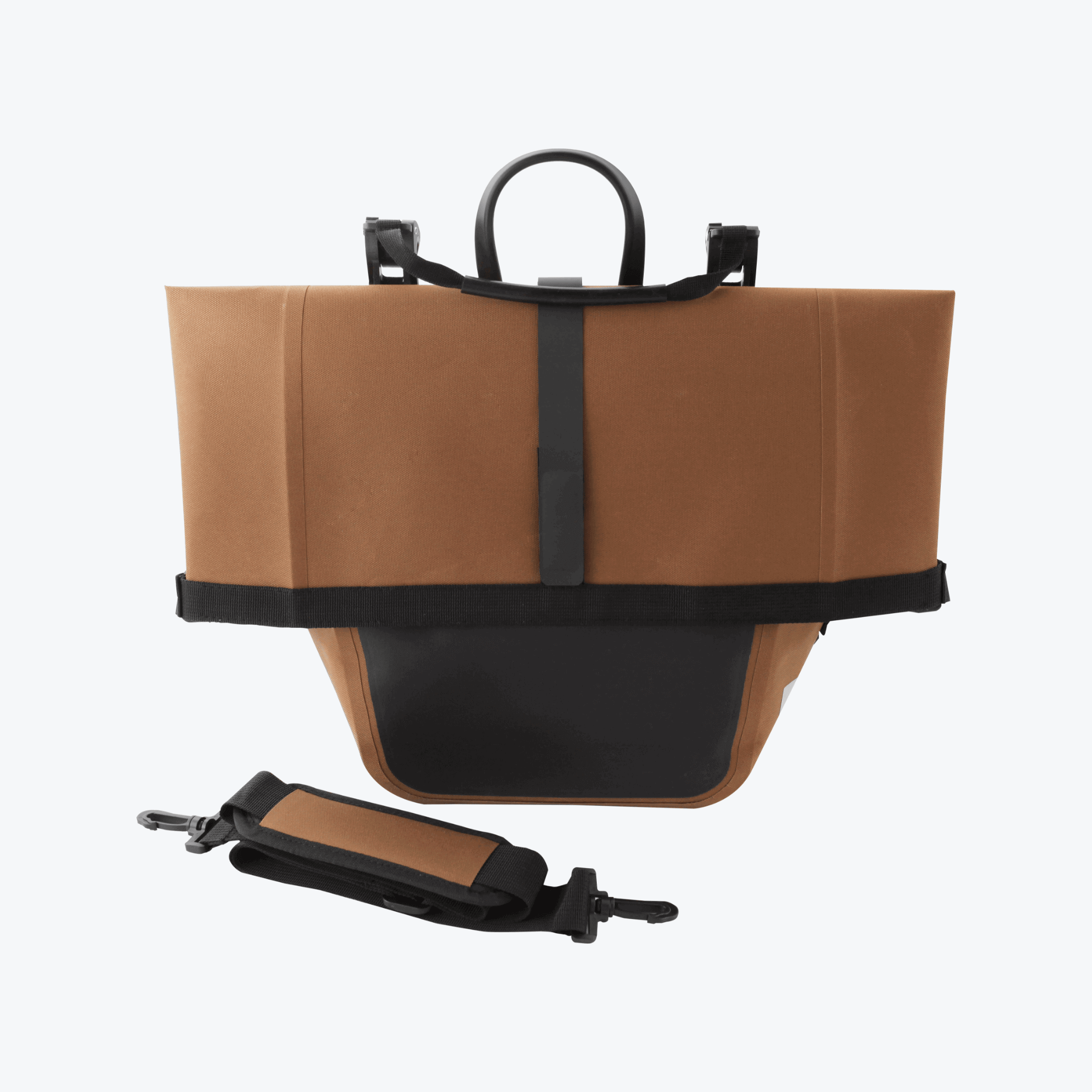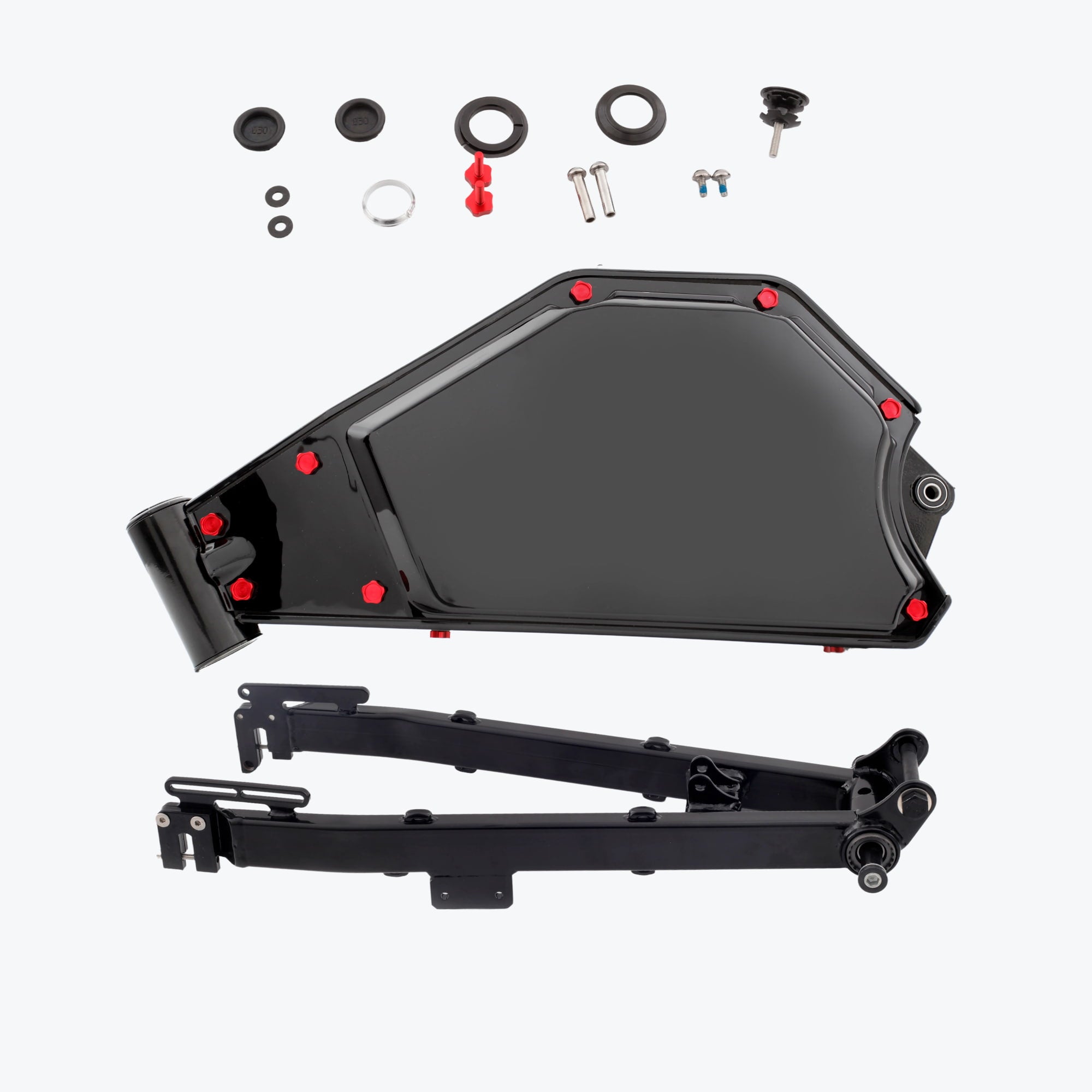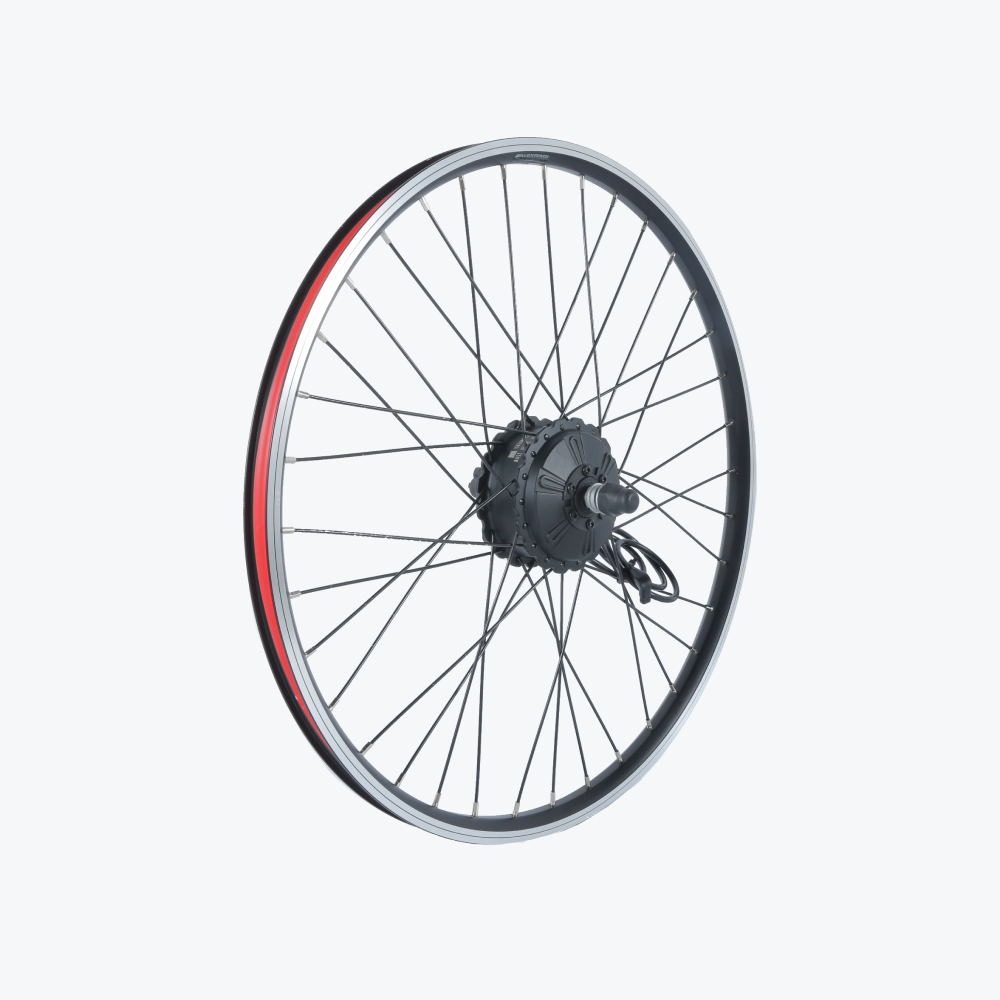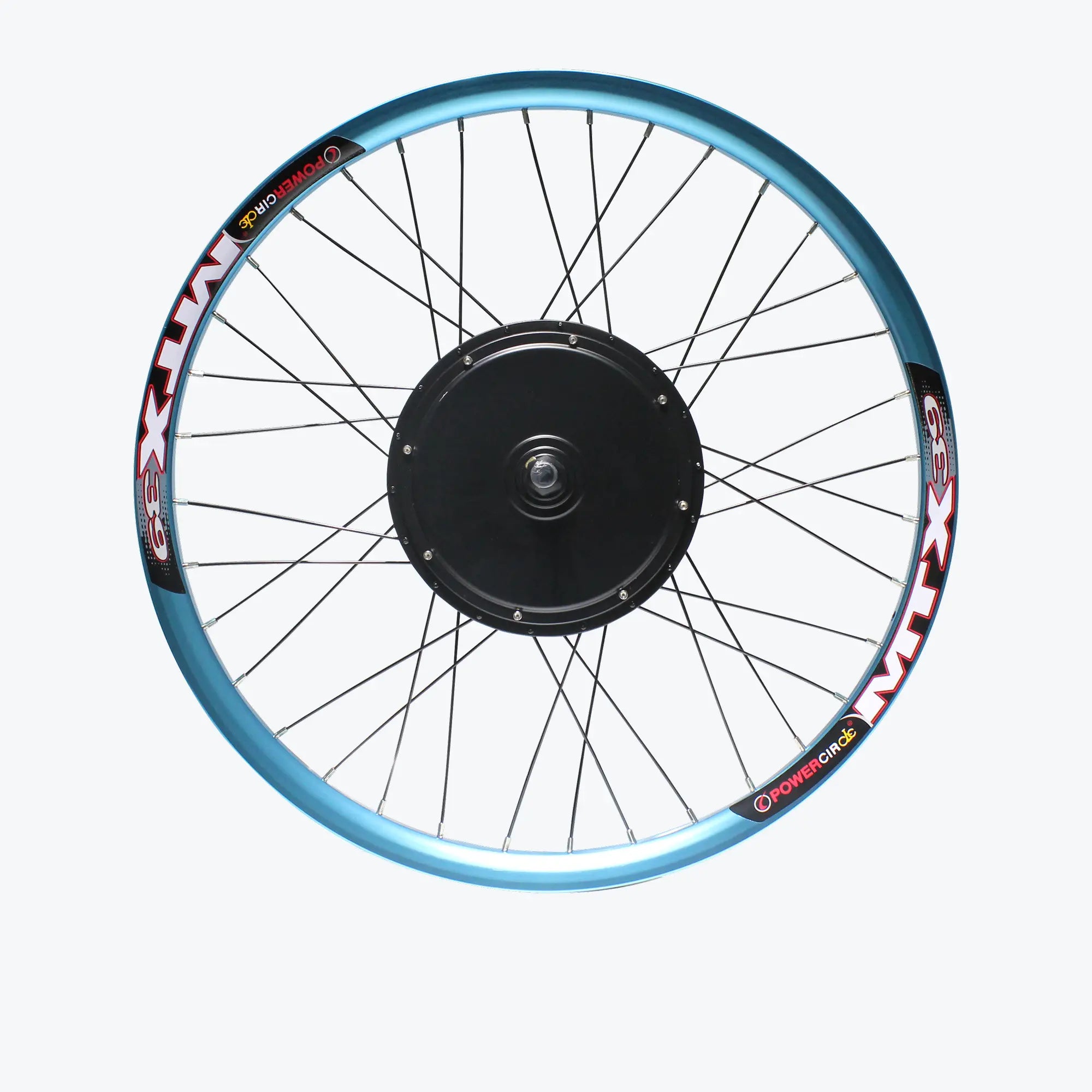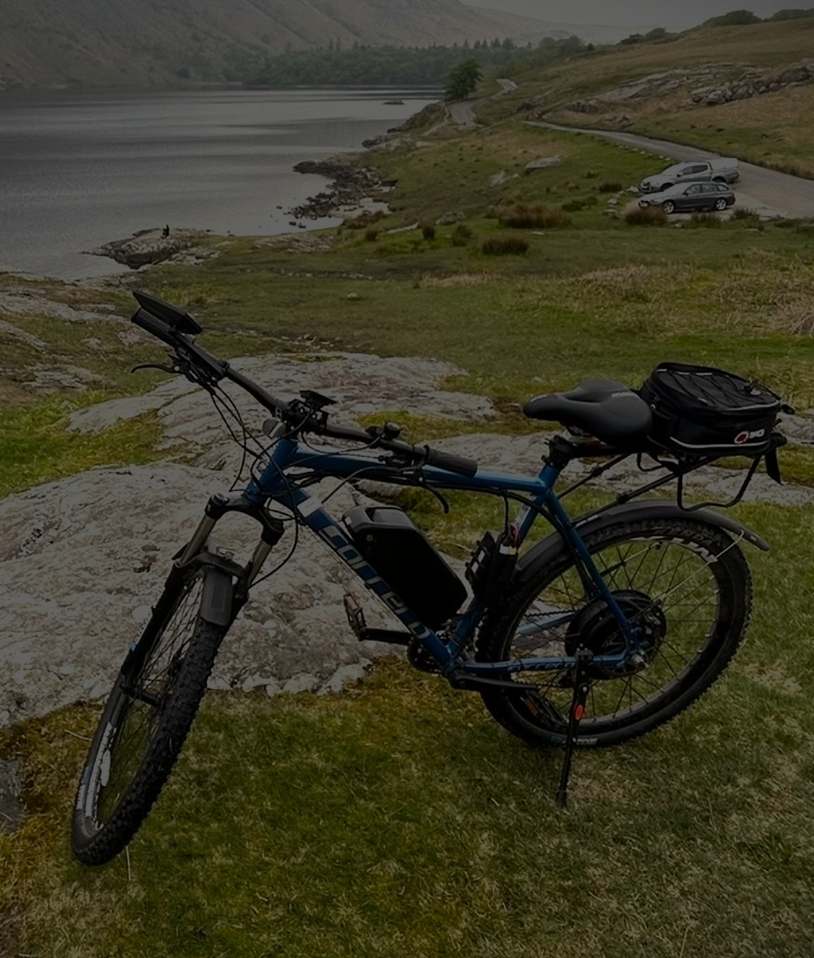ltage (V), battery capacity (amp-hours or Ah), and total energy (watt-hours or Wh). The formula is straightforward: Wh = V × Ah.
|
Voltage |
Battery Capacity (Ah) |
Top Speed (km/h) |
Typical Range (km) |
|
36 V |
13 Ah |
30–35 |
40–70 |
|
48 V |
11.6 Ah |
45–50 |
35–45 |
|
52 V |
20 Ah |
50–60 |
40–60 |
|
72 V |
20 Ah |
75–85 |
40–80 |
UK Rules for E-Bike Power
In the UK, Electrically Assisted Pedal Cycles (EAPCs) must follow specific rules: motors cannot exceed 250 W continuous power, pedal assistance is required, and motor support must stop at 25 km/h. KirbEbike 36 V/250 W kit complies with these regulations. However, their 48 V, 52 V, and 72 V kits go beyond these limits and are intended for off-road or private use only.
Up next, we’ll break down the pros and cons of each voltage option and where they work best.
Watts, Amp Hours ("Ah"), and Volts Explained for Electric Bikes
Battery Voltage Options: 36V to 72V
Here’s a breakdown of KirbEbike's battery voltage options:
36V Batteries for Everyday Use
KirbEbike's 36V kit (starting at £322) complies with UK e‑bike regulations, offering a top speed of 25 km/h and a range of 30–40 km per charge.
48V Batteries for Versatility
The 48V 1000W kit (starting at £494) strikes a balance between speed and range, reaching 45–50 km/h with a range of 35–45 km per charge. However, it loses power noticeably once the battery drops below 50% charge.
52V Batteries for High Performance
For those seeking more power, the 52V 1500W kit (starting at £590) achieves speeds of 50–60 km/h and a range of 40–60 km per charge. It also offers consistent power output throughout its charge cycle.
72V Batteries for Off‑Road Adventures
The 72V 4000W kit (starting at £906) is designed for off‑road enthusiasts, delivering speeds of 75–85 km/h and a range of 40–80 km per charge. Keep in mind, this option is not road legal.
Battery Voltage Comparison Chart
|
Voltage |
Ideal Use |
Advantages |
Drawbacks |
|
36V |
City rides |
Meets UK speed limits, budget-friendly |
Limited speed and range |
|
48V |
Urban and light trails |
Good mix of speed and range |
Power drops below 50% charge [1] |
|
52V |
High-speed rides |
Consistent power, better efficiency |
Higher initial cost |
|
72V |
Off‑road use |
Maximum speed and power |
Not suitable for road use |
The 48V battery experiences a noticeable drop in power once it’s half discharged, whereas the 52V battery maintains a steadier performance.
Selecting Your Battery Voltage
Choosing the right battery voltage depends on how you plan to use it. Consider your commute distance, the type of terrain, and the load you’ll carry.
- 36 V/250 W (starting at £307): Ideal for road use, short commutes up to 25 km, and flat terrain.
- 48 V/1,000 W (starting at £379): Suitable for mixed terrain and moderate hills, with a range of 35–60 km.
- 52 V and above: Designed for heavy loads or high speeds. A 60 V system can handle cargo runs up to 80 km.
Power vs Range Trade-Offs
Voltage plays a key role in determining both power output and range. Here's a quick comparison:
|
Voltage |
Typical Range |
Power Output |
Best For |
|
36 V |
30–40 km |
250 W (up to 500 W) |
Daily commutes |
|
48 V |
35–60 km |
750–1,000 W |
Mixed terrain and moderate hills |
|
52 V |
Varies by Ah |
1,500–2,000 W |
High-performance needs |
|
72 V |
40–80 km |
3,000–4,000 W |
Off-road and high-speed riding |
UK Regulations and Off-Road Use
In the UK, only 36 V/250 W systems comply with EAPC regulations (≤250 W, ≤25 km/h). Systems with 48 V or higher exceed these limits and are restricted to off-road or private land use .
Once you've chosen your voltage, focus on proper setup and maintenance to ensure your system performs well and lasts longer.
Battery Setup and Care
Once you've chosen your voltage, proper installation and regular maintenance are key to keeping your system safe and reliable.
Matching Components
Always ensure the voltages of your battery, motor, and controller match perfectly (e.g., a 48 V battery should pair with a 48 V motor and controller).
In October 2024, Christy Lynch installed a KirbEbike mid-drive kit on a Vitus Dee Nexus-3. By matching all components to 48 V, she experienced smooth hill climbs without any issues.
Safety and Upkeep
Take specific steps to maintain your battery in the UK's climate:
|
Condition |
Recommended Action |
Why It Matters |
|
After wet rides |
Dry all connections thoroughly |
Prevents oxidation and corrosion |
|
Cold weather |
Warm battery to room temperature before charging |
Protects battery cells |
|
Regular use |
Charge after each ride |
Maintains optimal cell condition |
|
Long-term storage |
Keep at around 60 % charge, room temperature |
Extends battery life |
Battery End-of-Life Care
When your battery can no longer hold a charge, make sure to dispose of it responsibly. You can return used batteries to KirbEbike or take them to a local recycling centre for safe disposal.
To maximise battery life, charge it when it drops to 30–60 % capacity during regular use. For storage, keep the battery charged at 75–80 % in a dry location with a temperature range of 0–40 °C.
Explore KirbEbike's Top Ebike Batteries by Voltage
Still not sure which setup is right for you? Here's a breakdown of KirbEbike’s top battery and conversion kits to help you make the right call—whether you’re commuting, climbing hills, or tearing up trails.
36V Battery Kits for Road Legal Use
If you're looking for a UK road-legal ebike, the 36V setup is your best choice. While KirbEbike specializes in performance kits, you can contact them directly for a compliant 36V/250W build.
48V Ebike Kits – Best for Versatile Urban Riding
Need more power for mixed terrain or delivery routes? The 48V 1000W ebike kit is a top seller, delivering speeds up to 45–50 km/h with excellent reliability.
- Motor Power: 1000W
- Speed: 45–50 km/h
- Range: 35–45 km per charge
- Ideal for: Moderate hills, weekend riding
52V Ebike Batteries – High Performance, Better Efficiency
Looking for that sweet spot between power and consistency? The 52V 2000W MTX Rim Kit is made for riders who want speed and stamina.
- Motor Power: 2000W
- Speed: 50–60 km/h
- Range: 40–60 km
- Features: Consistent torque, even at lower charge levels
72V Batteries – For Extreme Off-Road Power
For serious thrill-seekers, the 72V 4000W ebike kit delivers unmatched speed and torque. This high-voltage ebike battery setup is ideal for rugged trails and private tracks.
- Motor Power: 4000W
- Top Speed: 75–85 km/h
- Range: 40–80 km
- Controller: 72V, 60A smart controller
Why Trust KirbEbike for Your Setup?
Whether you're upgrading to a 52V performance ride or sticking with a 48V city commuter, KirbEbike offers expertly matched kits with plug-and-play simplicity, UK support, and free shipping.
Making Your Final Choice
Feedback from actual users supports the criteria we've discussed. The table below helps you match your riding style with the right voltage:
|
Riding Style |
Recommended Voltage |
Typical Range |
Best For |
|
Urban Commuting |
36V / 48V |
20–35 miles |
Daily rides on mostly flat roads |
|
Mixed Use |
48V / 52V |
25–50 miles |
Weekend trips and moderate hills |
|
Heavy Duty |
60V / 72V |
40–70 miles |
Delivery work and navigating steep terrain |
Combine this with the maintenance tips and criteria mentioned earlier to make your final decision. If you're unsure, reach out to KirbEbike support for tailored advice specific to the UK.

